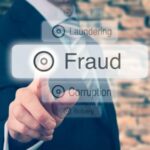1. Introduction
Banking scams are fraudulent activities that seek to exploit customers’ trust in their banks to steal money or sensitive information. These scams have evolved with the advancement of technology and the growth of online banking, making them more sophisticated and harder to detect. This article will discuss the different types of banking scams, provide tips on how to prevent them, and guide you on how to report any suspicious activities.
2. Types of Banking Scams
2.1. Phishing
Phishing is a social engineering technique where scammers impersonate a legitimate organization, such as a bank, to trick users into revealing sensitive information. This can be done through emails, phone calls, or text messages. The most common form of phishing involves sending an email that appears to come from a bank, asking the recipient to click on a link and enter their login credentials or other personal information on a fake website.
2.2. Identity Theft
Identity theft occurs when a scammer obtains someone’s personal information, such as their Social Security number, bank account details, or credit card information, and uses it to commit fraud. This could involve opening new accounts, taking out loans in the victim’s name, or making unauthorized transactions on existing accounts.
2.3. ATM Skimming
ATM skimming involves installing a small, hidden device on an ATM to capture users’ card information when they insert their cards. This can be done using a card reader that fits over the card slot or a small camera placed nearby to record the card details. The scammers then use this information to create counterfeit cards or make online purchases.
2.4. Bank Insider Fraud
Bank insider fraud occurs when an employee of a bank uses their position to steal money or sensitive customer information. This can involve unauthorized access to customer accounts, manipulation of transactions, or the sale of customer data to third parties.
2.5. Fake Check Scams
Fake check scams involve a scammer sending a counterfeit check to a victim, who is then asked to deposit it into their bank account and wire a portion of the funds to the scammer. Once the bank realizes the check is fake, the victim is held responsible for the funds withdrawn.
2.6. Loan Scams
Loan scams involve scammers posing as lenders or loan brokers, offering loans with attractive interest rates to lure victims. The victim may be asked to pay an upfront fee or provide personal information, which the scammer then uses to steal their identity or funds.
2.7. Investment Scams
Investment scams involve scammers convincing victims to invest in fraudulent or nonexistent investment opportunities with the promise of high returns. These scams can take various forms, such as Ponzi schemes, pyramid schemes, or fake initial coin offerings (ICOs).
3. Prevention
To protect yourself from banking scams, follow these precautionary measures:
- Be cautious of unsolicited emails, calls, or texts requesting personal information. Legitimate banks will never ask for sensitive information through these channels.
- Use strong, unique passwords for your online banking accounts and change them regularly.
- Enable two-factor authentication (2FA) for added security.
- Monitor your accounts regularly for unauthorized transactions.
- Be cautious when using public Wi-Fi networks, as they may not be secure.
- Keep your computer and smartphone up to date with the latest security updates.
- Do not share your personal information on social media or with unfamiliar individuals.
- Research investment opportunities and lenders thoroughly before committing your funds.
4. Reporting
If you suspect that you have been a victim of a banking scam, take the following steps to report the incident:
- Contact your bank immediately: Inform your bank about the suspicious activity or transaction to limit potential damage. They may be able to freeze your account or help you take further action.
- Report the scam to local law enforcement: File a police report with your local law enforcement agency. They may be able to assist you in recovering your losses and tracking down the scammers.
- Report the scam to the appropriate financial regulatory authority: Depending on your country, there may be a specific agency responsible for dealing with financial scams. For example, in the United States, you can report banking scams to the Federal Trade Commission (FTC).
- Report the scam to the Internet Crime Complaint Center (IC3): The IC3 is a partnership between the Federal Bureau of Investigation (FBI) and the National White Collar Crime Center that collects and investigates internet-related criminal complaints. Submitting a complaint to the IC3 can help them identify and track down cybercriminals.
- Monitor your credit reports: If you suspect your personal information has been compromised, keep an eye on your credit reports for any unusual activity or unauthorized accounts. You may also want to place a fraud alert or freeze on your credit reports to prevent further damage.
- Spread awareness: Share your experience with friends, family, and online forums to help others recognize and avoid similar scams.
5. Conclusion
Banking scams can have severe consequences for both individuals and financial institutions. By staying informed and vigilant, you can protect yourself from falling victim to these scams. Remember to keep your personal information secure, be cautious of unsolicited communication, and regularly monitor your accounts for suspicious activity. If you suspect that you have been targeted by a scam, report it to the appropriate authorities to help prevent others from being victimized and hold the scammers accountable.















